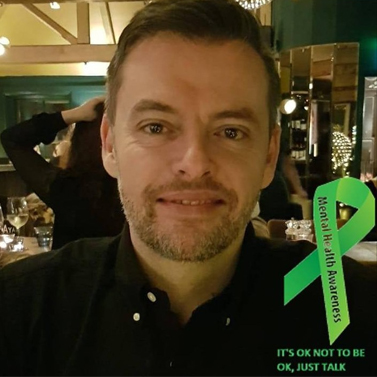Yes. Panic, Disorientation, Emotional Instability
Consuming hallucinogenic mushrooms, commonly known as psilocybin mushrooms, can affect the brain and may result in negative psychological repercussions.
The main component in hallucinogenic mushrooms, psilocybin, interacts with serotonin receptors in the brain, namely the 5-HT2A receptors. This connection causes changes in brain activity and neurotransmitter levels, most notably in the serotonin system. Changes in perception, mental processes, emotions, and sensory experiences can occur from these impacts.
While the vast majority of people who take psilocybin mushrooms have no long-term adverse effects, there are specific concerns to be aware of. Dramatic changes in perception and awareness caused by psilocybin can cause negative psychological repercussions.
Anxiety and Panic
Hallucinogenic mushrooms can amplify emotions, resulting in sensations of worry and panic. This can be especially dangerous for those who are anxious or who ingest mushrooms in an unmanaged or unfamiliar setting.
Disorientation and Confusion
Hallucinogenic mushrooms can cause disorientation and confusion by interfering with normal cognitive functioning. This can make navigating and comprehending one’s environment challenging, perhaps leading to discomfort.
Emotional Instability
Hallucinogenic mushrooms tend to heighten emotions, resulting in extreme mood swings and emotional instability. This can cause feelings of exhilaration, but it also makes people more vulnerable to unpleasant emotions like grief or fear.
If you decide to use hallucinogenic mushrooms, you should start with a modest dose, have a trustworthy and sober trip sitter present, and choose a secure and comfortable place.
Yes. Can Help Mitigate, and Exacerbate, Mental Illness
One of the biggest impacts that consuming hallucinogenic mushrooms has on the brain is the immediate improvement in neuroplasticity. The psychoactive substances in these alternative medications activate certain serotonin receptors in the brain which help sustain neurons, as well as enhance and form new synaptic connections.
Ultimately, this results in improved synaptic plasticity where the brain is able to modify its structure and function in response to experiences and environmental stimuli. This means that the brain can adapt better to its environment and absorb more information from every stimulus.
Psilocybin, the psychoactive chemical found in hallucinogenic mushrooms, has been awarded “fast track” designation by the FDA for individuals with treatment-resistant depression. Interestingly, in addition to its ability to increase synaptic plasticity, psilocybin has shown a unique ability to allow users to sometimes see their behavior in the world from different perspectives, which can be a very powerful element of treatment.
However, this also means that the body has to be more sensitive to its environment, thereby triggering heightened senses. The pliability of neurons during a psychedelic high can cause the brain to have a distorted understanding of the neurotransmitters provided by the senses, resulting in the intensification of perception, mood, and cognition, which users describe to be “transcendent.”
Due to this, individuals with pre-existing mental health conditions like schizophrenia or bipolar disorder may experience an exacerbation of their symptoms, making them more susceptible to adverse psychological effects. Similarly, individuals with a history of anxiety or depression may be at a higher risk of negative experiences during a psychedelic trip due to their vulnerable psychological states.
Moreover, the heightened emotional and sensory sensitivity during a psychedelic high helps enable a deeper exploration of thoughts and memories, bringing previously repressed or suppressed traumatic memories to the forefront and making them more accessible and vivid. Being in an uncontrolled neuroplastic state, during a hallucinogenic experience involving distressing encounters like this, can ultimately do more harm than good and even damage the brain.
This is why it is crucial to approach the use of hallucinogenic mushrooms with caution, particularly for individuals with pre-existing mental health conditions or a history of trauma. Creating a safe and supportive environment, along with proper consultation with qualified professionals, preparation, and integration practices, can help mitigate the potential risks and promote a more positive and therapeutic experience.
Yes. Use Can Lead to Acute Anxiety, Fear, and Elevated Psychological Response
Hallucinogenic substances, which include substances like psilocybin (Magic Mushrooms), LSD, mescaline, and ayahuasca are all substances that primarily have their physiological effects on various serotonin receptors in the brain.
The two most common subtypes that are affected by hallucinogenic substances are 5-HT2a and 5-HT2c, with the former thought to be responsible for the hallucinogenic activity. There can be significant psychological effects following consumption of such substances.
A ‘bad trip’ can lead to acute anxiety, fear, and elevated physical response (increased heart rate, blood pressure, body temperature, etc.).
While these acute changes generally pass once the substance is cleared from the body, there can be persistent psychoactive symptoms that develop following use. This can include anxiety, mood symptoms, and psychosis.
Similarly, users can experience a phenomenon classified as hallucinogen-persisting perceptual disorder (HPPD), which is essentially a flashback to a bad trip, where an individual can experience lasting altered visual images, wavering, visual borders, light trails, and other perceptual disturbances long after the substance is cleared from the body.
Finally, use of hallucinogenic substances in combination with certain prescription medications can lead to a fatal condition known as ‘serotonin syndrome,’ where an individual’s serotonin levels rise to unsafe levels and can present with hyperthermia, muscle rigidity, confusion, and autonomic instability.
Yes. Anxiety and Paranoia
While research on this topic is still limited, current studies suggest that consuming hallucinogenic mushrooms can lead to a range of psychological experiences, including positive ones like increased creativity and positive mood, but also negative ones like anxiety and paranoia. The extent of these effects depends on a range of factors, including dosage, set, and setting. As with any psychoactive substance, it is important to approach the use of hallucinogenic mushrooms with caution and awareness of the potential risks involved.
This is a crowdsourced article. Contributors' statements do not necessarily reflect the opinion of this website, other people, businesses, or other contributors.




